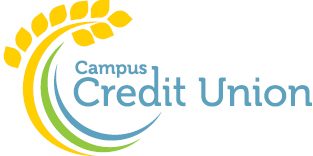As a member of Campus Credit Union, you do not have to worry about the security of your personal information. Just like you, we want all your personal information kept that way – personal and private.
When you give us information about yourself over the Web site, we use it to verify who you are, to keep your account with us secure and to complete your transactions or business. Your personal information is private, and we respect your privacy. The information you give us, stays with us. We have never sold and never will sell information about you to any third party. We never give your e-mail address to anyone, and we will not send you unsolicited e-mail. If we want to use your comments or correspondence, we will always ask you first. (And we only use it if you give permission.)
At Campus Credit Union, your personal and account information is secure and private – always.
Internet Account Access Security
What kind of security is being used for Internet Account Access? Campus Credit Union uses the latest technology to protect your account information from exposure to unauthorized persons. Below are some of the components of this security system:
- An account number and PIN (password) are required to access the system.
- 128-bit encryption scrambles your transmissions when crossing the Internet.
- After entering a PIN (password) incorrectly three times, access to an account is blocked.
- VeriSign, the recognized leader in Internet security, allows you to see the security features of our Internet Account Access program before you use it.
You are responsible for protecting the secrecy of your PIN (password) in accordance with the terms contained in your Membership Account Agreement. We recommend you not store secured pages in your cache or leave your computer unattended while you are logged into our Internet Account Access.
What is encryption?
Encryption takes meaningful text and numbers and scrambles them into numerical nonsense before transmitting them across the Internet. Your account information becomes “all mixed up and nonsense” when encryption is in place. For example, “pay $40 from checking to loan #1” could become something like “752144835628174317312”.
The encryption process occurs for information going both directions – from your computer to the credit union and vice versa. Encryption uses complex algorithmic formulas to create a key that is used to translate the nonsense back to “pay $40 from checking to loan #1”. There are billions of potential keys, and a different key is used for each Internet Account Access session. Your computer and Campus Credit Union’s computer establish this key when they make your Internet Account Access connection.
Because there are billions of potential keys, it would take a thief several lifetimes to produce the exact key a specific transmission uses. Netscape estimates the basic level of encryption (40-bit or international) would take a 64-MIPS computer a year of dedicated processor time to break. Domestic, or 128-bit, encryption is exponentially more difficult to break. That is why we suggest using only 128-bit encryption to give you the highest level of protection while using these Internet services.
